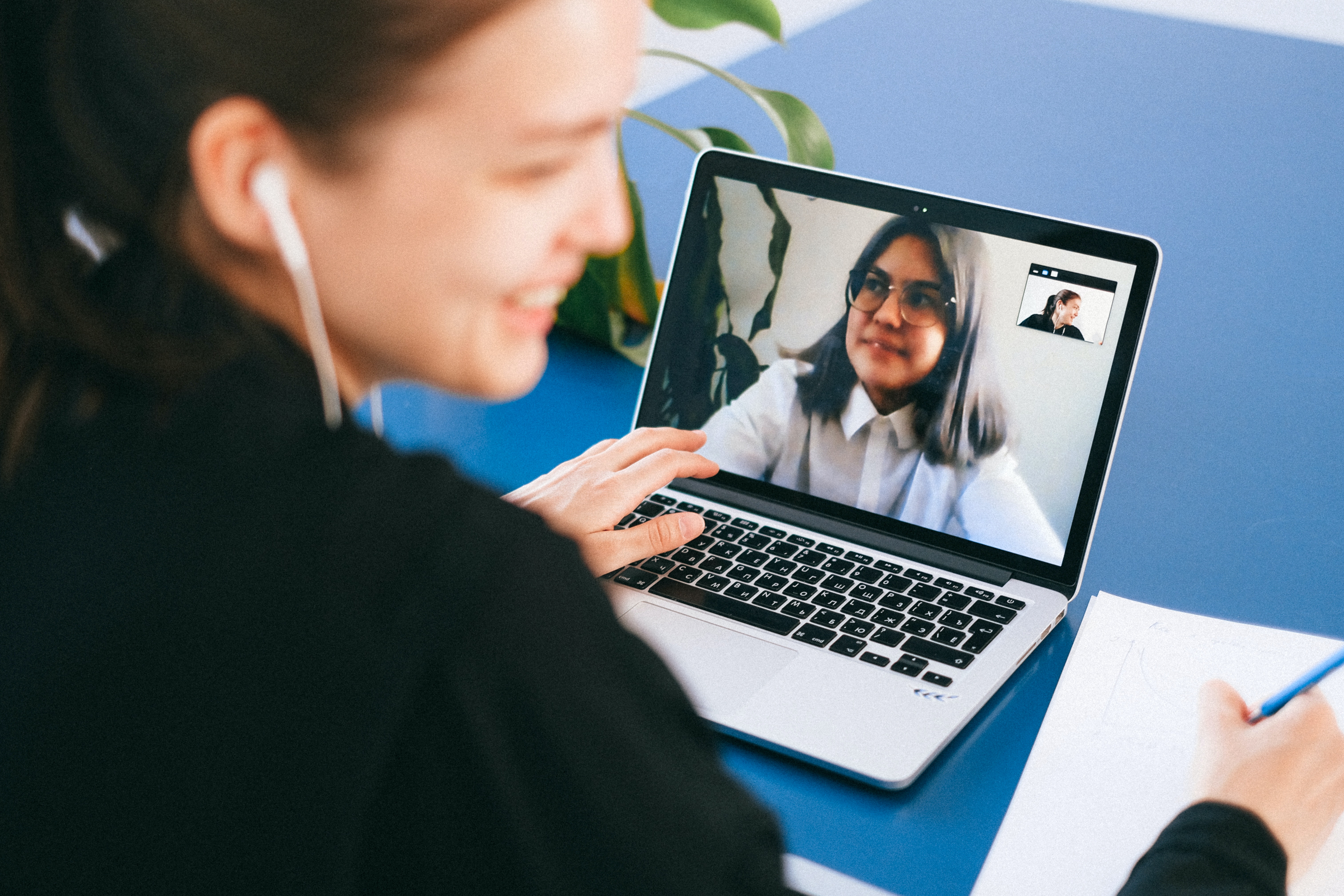<- Back
The COVID-19 pandemic has changed the way many businesses operate, with more and more positions now being filled through remote job interviews. While this new approach can often feel intimidating for job seekers, there are plenty of options to make you feel confident and prepared for an online interview. In this blog post, we’ll explore how to prepare for a successful video interview so that you can make the most of your remote job search!
Introduction: Benefits of a Remote Job Interview
One of the great things about a remote job interview is that you can conduct the interview from the comfort of your own home. This means that you don’t have to worry about travelling to and from the interview, or taking time out of your day to meet with the interviewer in person.
Another benefit of a remote job interview is that it can be recorded, so you can go back and listen to it again later if you need to. This can be helpful if you want to review your performance or if there are any questions that you didn’t catch the first time around.
Lastly, a remote job interview can be a great way to get to know the company and the team that you’ll be working with, without having to commit to a full-time position right away. This can help you decide if the company is a good fit for you before making any long-term decisions.
Do Your Research
The best way to prepare for a remote job interview is to do your research. Learn about the company, the position, and the interviewer. This will help you be more confident and successful in your video interview.
Here are some tips for doing your research:
1. Go to the company’s website and read through their About Us page. This will give you an overview of their business and what they’re looking for in an employee.
2. Look up the position you’re applying for on job sites like Indeed or Glassdoor. Read through the job descriptions to get a better understanding of the duties and responsibilities involved.
3. Visit the interviewer’s LinkedIn profile or Google them to learn more about their professional background. This will give you an idea of what they’ll be looking for in a candidate.
4. Finally, prepare some questions to ask during your interview. This will show that you’re interested in the position and company, and it will give you information that you can use to make a case for why you’re the best candidate for the job
Practice Answering Interview Questions
You can never predict exactly what questions you’ll be asked in a job interview, but you can control how you answer them. In order to ace your upcoming remote job interview, take some time to practice your responses to common interview questions.
Start by writing out answers to the most common interview questions, such as “Tell me about yourself” and “What are your strengths and weaknesses?”. Then, practice delivering your responses out loud. Not only will this help you keep your cool under pressure during the actual interview, but it will also allow you to hear how your answers sound to a potential employer.
Finally, don’t forget to tailor your responses to each individual job. This means doing research on the company and position beforehand, so that you can show off your knowledge and explain why you’re the perfect fit for the role. With a little preparation, you’ll be able to confidently deliver great answers to any questions that come your way in the remote job interview.
Ensure You Have the Right Technology Setup
If you want to have a successful remote job interview, you need to make sure you have the right technology setup. Here are a few things to keep in mind:
First, you need a good internet connection. If you’re doing a video interview, you don’t want your connection to drop in the middle of the conversation.
Second, you need a webcam. A lot of laptops nowadays have built-in webcams, but if yours doesn’t, you’ll need to invest in an external one. It’s worth it to get a good quality camera so that your interviewer can see you clearly.
Third, you’ll need some sort of audio setup. Again, many laptops have decent microphones built in, but if yours doesn’t (or if you just want to make sure your audio is clear), consider using a headset or even just plugging in an external microphone.
Fourth, be aware of your surroundings. Make sure there’s no background noise that will be distracting, and try to find a spot where there’s good lighting so that your interviewer can see you well.
Fifth and finally, test everything out ahead of time! Do a trial run with a friend or family member to make sure everything is working properly and that they can hear and see you clearly.
By following these tips, you can be confident that your technology won’t let you down during your remote job interview.
Dress to Impress
In order to make a good impression during a remote video job interview, it is important to dress the part. This doesn’t mean that you need to go out and buy a new wardrobe – simply ensure that the clothes you do wear are clean, wrinkle-free, and presentable. In terms of colour, it is best to err on the side of caution and stick to neutrals like black, grey, or navy. Avoid wearing anything that is too loud or distracting.
Keep in mind that first impressions matter. Even though your interviewer will only be seeing you from the chest up, it is still important to dress professionally from head-to-toe. You never know when you might need to stand up during the call!
Make Sure You Speak Clearly and Use Body Language
When you’re in a remote job interview, speaking clearly is even more important than it is in an in-person interview. Make sure you enunciate your words and make eye contact with the camera. It’s also important to use body language. Sit up straight and avoid crossing your arms, which can make you appear defensive. Nod when the interviewer is speaking to show that you’re engaged, and smile when appropriate.
Be Flexible With Situations That May Arise
Flexibility is key when it comes to video interviews. You never know what might happen during the call, so it’s important to be prepared for anything that might come up. Here are a few tips to help you be flexible and succeed in your remote job interview:
– Be aware of your surroundings. Make sure you’re in a quiet place with good lighting where you won’t be interrupted.
– Be prepared for technical difficulties. Have a backup plan ready in case your internet connection or video equipment fails.
– Be flexible with your questions. If the interviewer asks something unexpected, take a moment to think of a thoughtful response instead of getting flustered.
– Be flexible with your answers. If you’re asked a difficult question, don’t hesitate to take a minute to think about the best way to answer it. The interviewer will appreciate your honesty and thoughtfulness.
Ask Clarifying Questions and Show Enthusiasm
When you’re job interviewing remotely, it’s important to make sure that you ask clarifying questions and show enthusiasm. This will help you build rapport with the interviewer and ensure that you understand the company’s needs. Here are some tips for doing so:
– Ask questions about the role, the company, and the interviewer’s experience. This will help you get a better understanding of what they’re looking for and if the position is a good fit for you.
– Show excitement about the role and the company. Let them know that you’re eager to learn more about what they do and how you can contribute to their success.
– Be prepared to answer common interview questions, such as “tell me about yourself” or “why are you interested in this role.” Practice your answers beforehand so you sound confident and polished on camera.
Summary
By following these steps, you can be ready to face a remote job interview with confidence. Remember not to let anxiety take over the conversation – just go in prepared and be yourself for the best possible outcomes. With preparation, practice and poise, you’ll have all that’s needed for a successful video interview.










